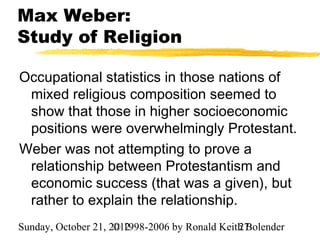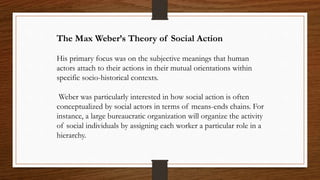How Does Weber Explain Different Types of Societies
Similar to Marx Weber saw class as economically determinedSociety he believed was split between owners and laborers. The major types of societies historically have been hunting-and-gathering horticultural pastoral agricultural industrial and postindustrial.
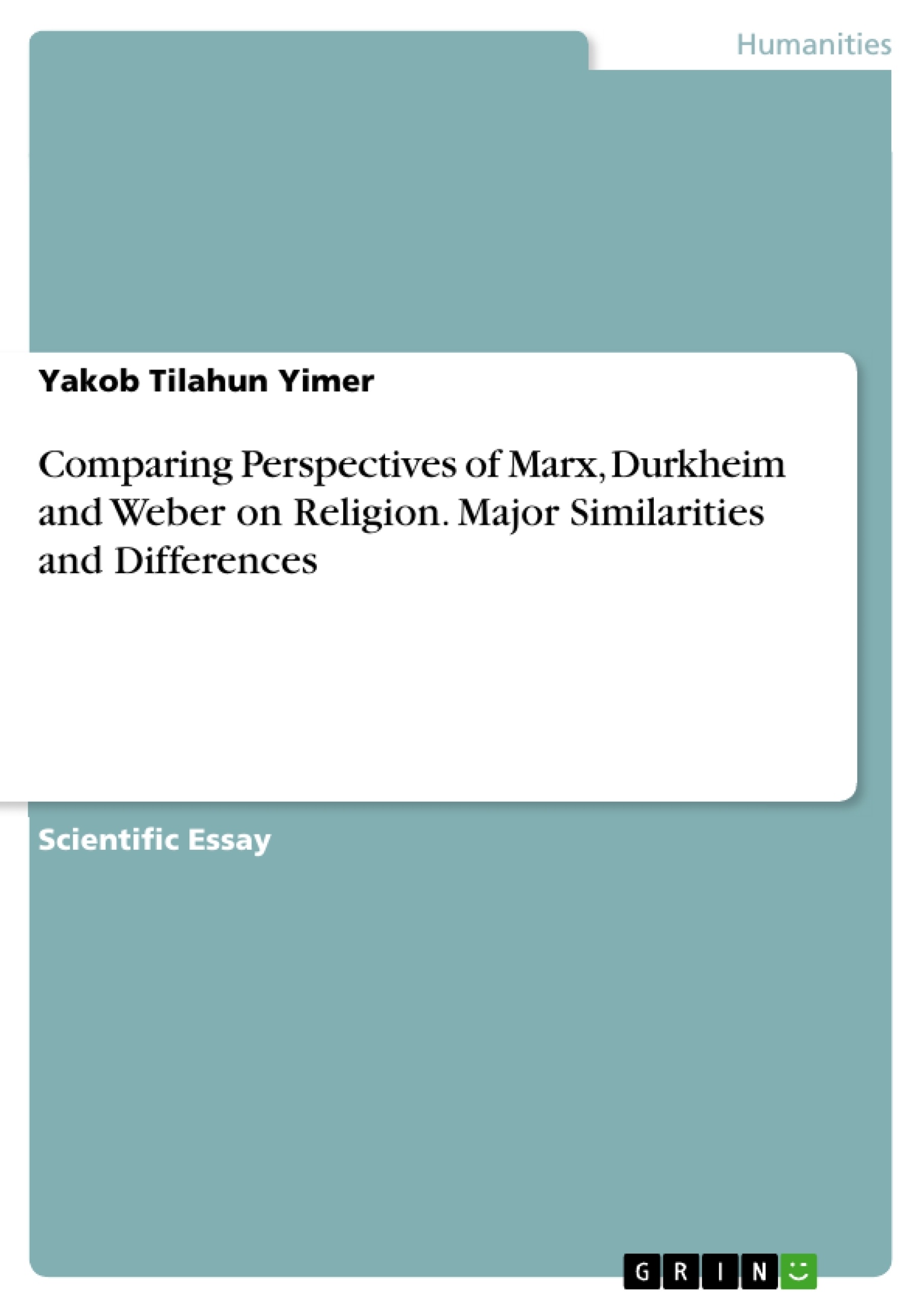
Comparing Perspectives Of Marx Durkheim And Weber On Religion Major Similarities And Differences Grin
Webers primary focus on the structure of society lay in the elements of class status and power.
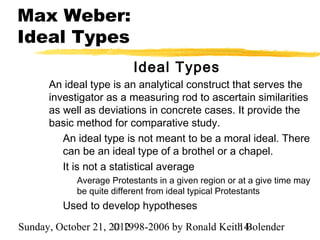
. AU this does not explain why only some and not others are destined to fulfiU this kind of altruistic function by engaging in. Essentially the difference between the theories of Marx and Weber seems to lie in the fact that Marx sees economic factors as the main cause of division between classes while Weber argues that social stratification is definable in terms of status and party as well as class Giddens 1993. Nevertheless in a lecture delivered in Vienna in the fall of 1917 he considered a fourth possible type of authority and I will briefly deliberate on this.
Charismatic -- This is the most primitive type of political power in which a group is held together by the personality. How does Webers view on social stratification differ from Marxs view. One of the great Sociologists Max Weber has explained the term rationalization as the way or a process which organizes daily-life of an individual socially.
The propertied upper class The property less white-collar workers The petty bourgeoisie The manual working class According to Weber factors other than the ownership or non-ownership of property are significant in the formation of classes. Based on this work Weber developed a classification system for authority. His best known sociological theory was the law of three stages which held that all human societies and all forms of human knowledge evolve through three distinct stages from primitive to advanced.
Class status and party. What is social change theory. He defines class as an economic interest group and as a function of the market place.
Before moving on to the ideal types of social action it is important for reader to understand that what weber meant by the ideal. Types of Societies He has broken the level of societies into five types. Max weber stated that there are four ideal types of social actions.
Unlike Marx Weber believed that these ideas formed the base of society. In practice all aspects of authority were interrelated and dynamic though there was a tendency. Weber distinguish the following class grouping in capitalist society.
Class is a persons economic position in a society. Nor is power the only basis of social honor. Weber developed the three-component of stratification ie.
Similar to Marx Weber saw class as economically determined. In societies as evidenced by the self-sacrifice of Sócrates which paved the way for a new morality so urgently needed in Athenian society 1966. Social change is a concept many of us take for granted or dont really even understand.
Both status and class determined an individuals power or influence over ideas. What is Webers sociological theory. Which are as follow goal rational social action value rational social action affective social action and traditional social action.
Webers concept of class is similar to the one given by Karl Marx. Marx had a generally optimistic view about the future and believed his theory could improve human conditions. Societies based on the production of nonmaterial goods and services pastoral societies societies based around the domestication of animals society a group of people who live in a definable community and share the same culture Further Research The Maasai are a modern pastoral society with an economy largely structured around herds of cattle.
As cities expanded ownership and preservation of resources became a pressing concern. The ninth century gave rise to feudal societies. It changes the thinking of an individual.
Marx and Webers characteristics of modern societies were different. Difference in social standing between men and women increased. Marx and Weber identified problems within modern society.
Put briefly he identified three types of authority. In Economy and Society 1978926 Weber stated that mere economic power and especially naked money power is by no means a recognized basis of social honor. Marx stressed capitalism and class conflict and Weber stressed rationalisation and bureaucracy.
Sociologists define social change as. Weber would say that people go through three different forms of government. All three were ideal types or generalisations.
The theological the metaphysical and the positive. The first is the means- end rationality. A Webers View of Class.
All of these are kinds of competing interest groups in society. Webers primary focus on the structure of society lay in the elements of class status and power. Webers differentiation between the two basic types of rational action is of greatest importance.
His three types of authority are traditional authority charismatic authority and legal-rational authority Weber 1922. They are observational understanding that refers to the comprehension an individual gains through observing and explanatory understanding where one has to pay attention to the motive to understand the meaning. Rational-Legal Authority According to Weber power made legitimate by laws written rules and regulations is termed rational-legal authority.
Weber speaks of two types of understandings that can be gained through studying the social action. Weber makes distinction between three ideal types of dominationsauthority. Weber gives a three dimensional model of stratification in terms of Class Status and Party.
The Types of Social Action and the Types of Rationality Webers fourfold typology of social action-affectual traditional value- rational and means-end rational action-refers to universal capacities of Homo sapiens. As societies developed and grew larger they became more unequal in terms of gender and wealth and also. These societies contained a strict hierarchical system of power based around land ownership and protection.
Hunters and gatherers Horticultural Pastoral Agricultural Industrial Since Lenskis description of societies in. Traditional charismatic and legalrational. The action that is determined by expectations as to the behaviour of objects in the environment and other human beings.
The process provides the scientific reasons for an individual to understand their culture their social-norms and folkways etc.
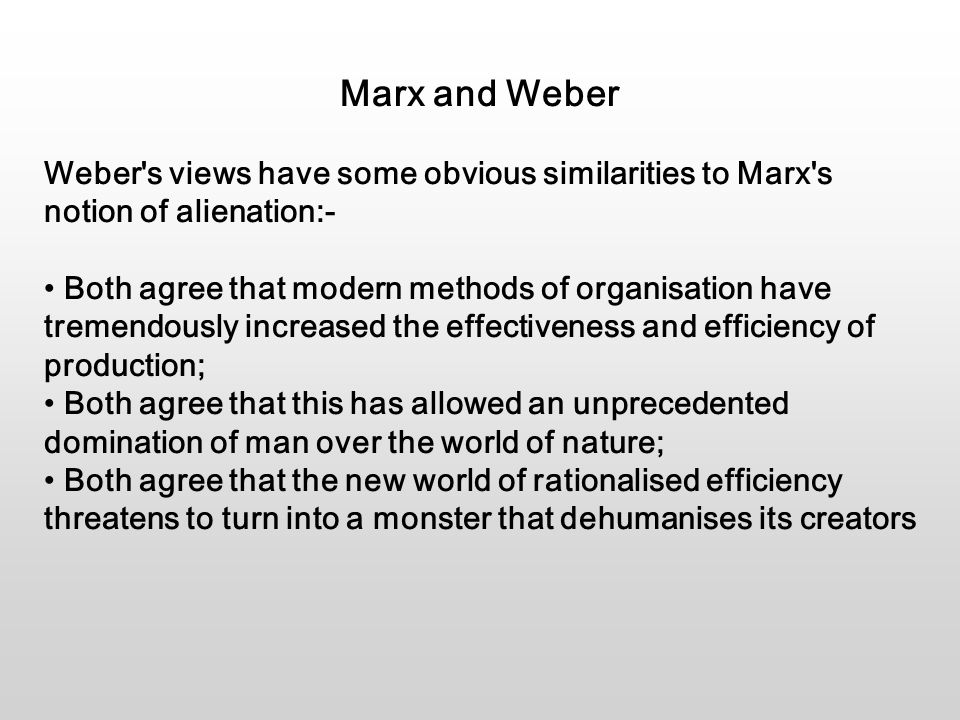
Max Weber And The Bureaucratisation Of Early Childhood Ppt Video Online Download

Anthropology For Beginners Max Weber

Theories Of Secularization Rationalization And The Disenchantment Of Society Revisesociology
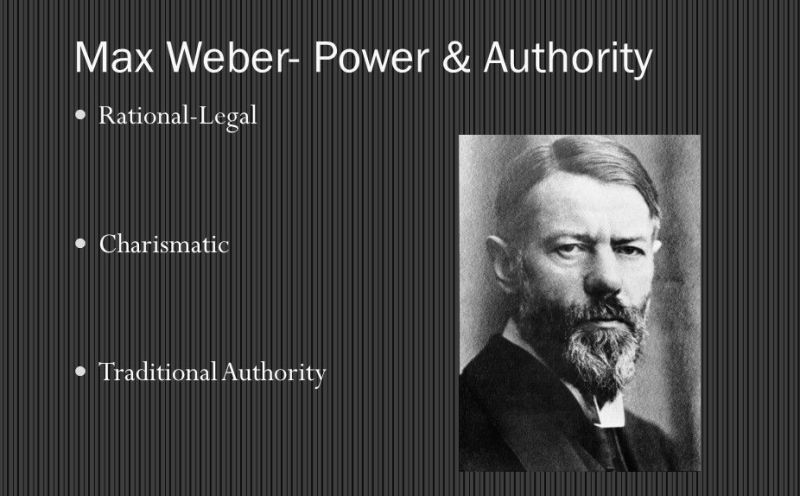
Max Weber S Three Types Of Authority Studiousguy

Max Weber 1864 1920 Sociology Sociological Imagination Feminism Sociology
Power And Authority Course Hero

Max Weber S Social Action Theory Revisesociology

The Sociology Of Max Weber Ppt Video Online Download

Max Weber And The Sociology Of Islam Cairn International Edition
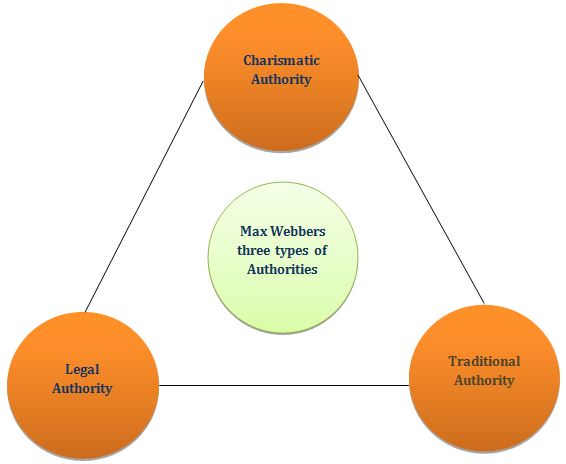
Max Weber S Three Types Of Authority Studiousguy

Theories Of Secularization Rationalization And The Disenchantment Of Society Revisesociology
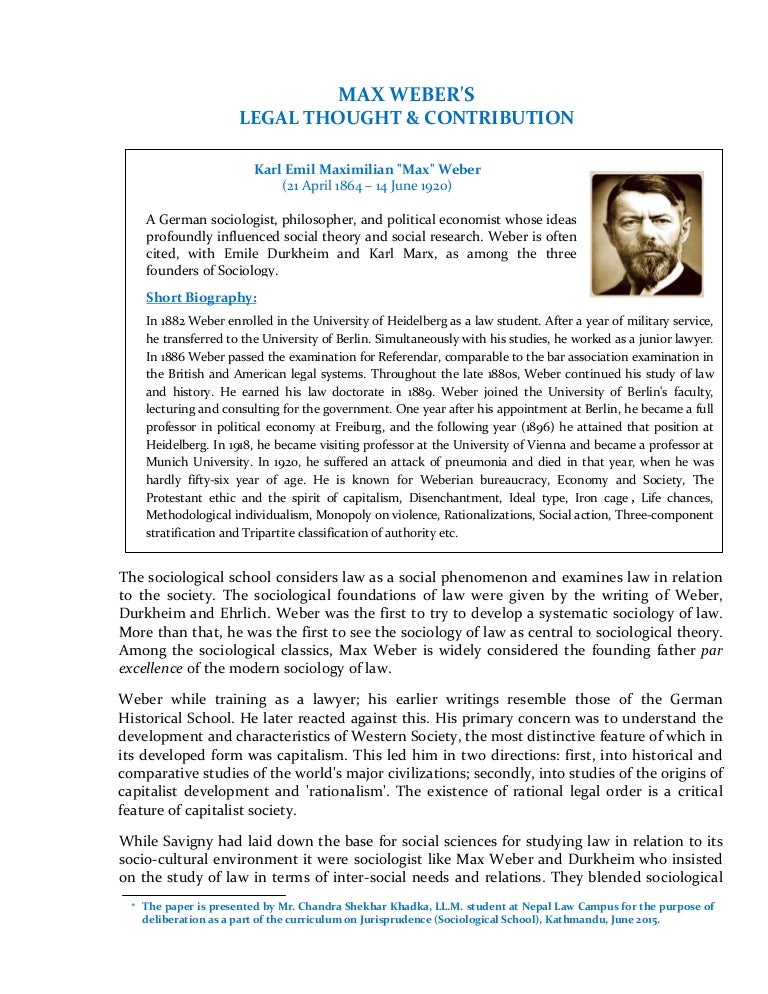
Max Weber S Legal Thought Contribution

Weber On Religion Beliefs In Society A Level Sociology Youtube

Max Weber The Protestant Ethic And The Spirit Of Capitalism Revision Notes Revisesociology
